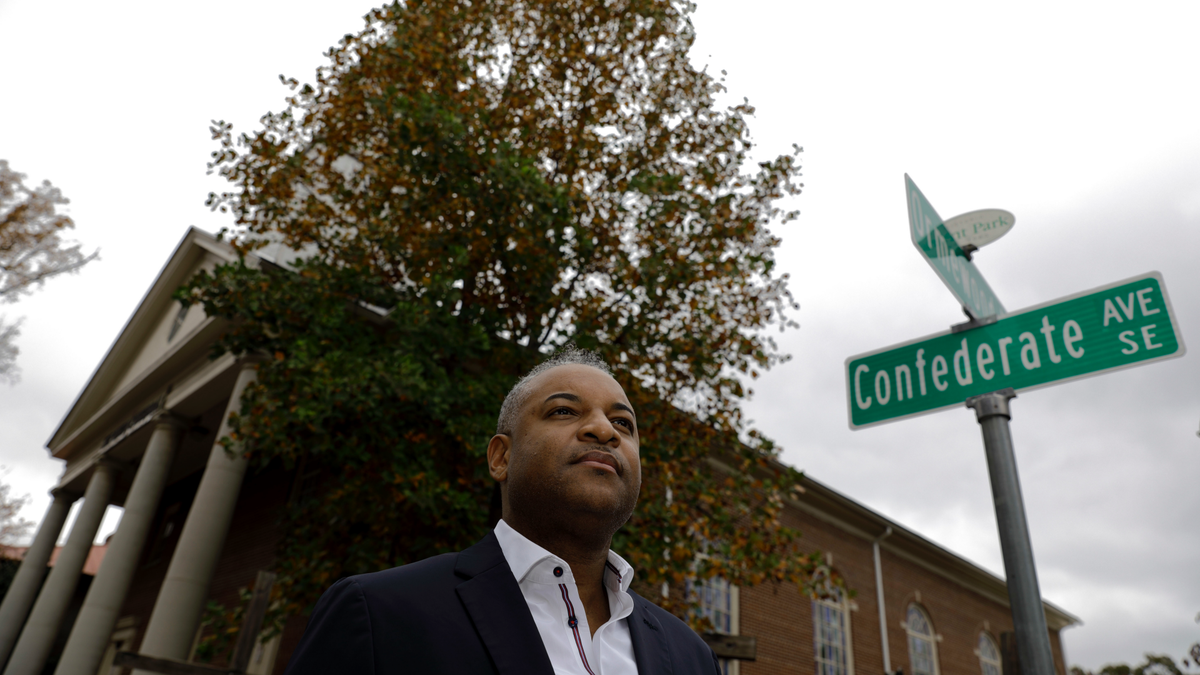
ATLANTA – A roadway in Atlanta serves as a concrete reminder to drivers, joggers and neighbors that Georgia once took up arms against the United States of America.
It's called Confederate Avenue.
Running 1.4 miles (2.25 kilometers) from the leafy edges of gentrified Grant Park to the gritty bustle of Moreland Avenue, its name once got little notice. But now, amid a national re-examination of Confederate symbols, it's a trigger for debate and a likely target for a new name.
In the summer of 2015, after white supremacist Dylann Roof killed nine black worshippers at a church in Charleston, South Carolina, Confederate symbols became the focus of fierce contention. On social media, Roof had been pictured with a Confederate battle flag.
Following a white nationalist rally in Charlottesville, Virginia, where a woman was killed in August, an Atlanta resident began a name-change petition drive for the road. With the blessing of Atlanta Mayor Kasim Reed, a committee is looking at renaming Confederate Avenue, as it reviews city streets and monuments "associated with the Confederacy."
Atlanta is among several cities — including New Orleans, Baltimore, Dallas and Richmond, Virginia — that have been reviewing Confederate symbols.
It wouldn't be the first time Atlanta ditched a Civil War street name. Ralph David Abernathy Boulevard was once named for Confederate Gen. John B. Gordon; and Rev. Joseph E. Lowery Boulevard used to be Ashby Street, named after Gen. Turner Ashby.
The debate is also playing out on Confederate Avenue, where those who know it well hold differing opinions about the name change.
___
Joe Thomas of Atlanta woke up one Sunday morning in August — the day after Heather Heyer was run over by a car in Charlottesville, Virginia — and wrote an online petition calling for city leaders to rename Confederate Avenue. The petition now bears nearly 9,000 signatures.
Thomas grew up in the neighborhood, and his bus stop was on Confederate Avenue, he said in an interview.
Thomas said he understands the argument that some monuments should be preserved as reminders of past mistakes, so they won't be repeated. New signs or plaques have been added to some Confederate statues to provide context or another viewpoint of historic events — but that won't work with street signs, Thomas says.
"Because of their nature, you can't provide any context in a street sign," he said. "So I think street signs in particular need to change."
___
For the past decade, Alan Keck has carried a large Confederate battle flag as he jogged or walked around Grant Park, where Confederate Avenue begins.
The 68-year-old retired carpenter says he believes Confederate soldiers were honorable men fighting for states' rights, and that even today states should have the right to secede from the union. He also believes that Atlanta, of all places, should preserve its historical connections to the Confederate States of America.
"I think a hysteria has gripped the nation lately," Keck said of people who want to tear down Confederate monuments. "All they see is evil and darkness," he said. "People like me believe in the Confederacy and what it stands for."
"My gosh, we had the Battle of Atlanta within a short walk from my house," said Keck. "We're in the South. We're in Atlanta. These are our roots."
___
Every Sunday, Bishop O.C. Allen III leads the Vision Church of Atlanta in worship at the corner of Confederate and Ormewood Avenue in a building once known as Confederate Avenue Baptist Church.
"The Confederacy enslaved my ancestors," says Allen, who is black, as are most members of his congregation. He began leading the church in 2010.
Every Sunday, he says, he and his congregation can't miss the large "Confederate Avenue" street sign a few feet from the church steps.
"Signs matter," he said. "I think it's important to really understand how powerful and profound symbols really are."
"Changing a street name does not eradicate systems of racism and those types of things, but I think it's a step in the right direction," he added.
___
Confederate Avenue was named after the former Confederate Soldier's Home, which opened in 1900. The site is now home to the Georgia State Patrol Headquarters and other state offices.
Aside from this government complex and some churches and businesses, Confederate Avenue is residential, lined with towering hardwoods and pines. Several houses display American flags out front, and some frequently fly the rainbow flag of gay pride. A few flags honor the city's hugely popular soccer team, Atlanta United, and a Puerto Rico flag flies at one home.
In the neighborhood's Facebook group, some suggested changing Confederate Avenue to Considerate Avenue.
___
Fitness coach Kurt Gillon, who owns Balanced Fit Life Training Studio on Confederate Avenue, says he thinks everyone should have a voice in the discussion.
As a business owner, "you ask different questions as opposed to residents," he says. Among them: What would a name change mean in terms of shipping, stationery, logos and other aspects of his business?
The street name has never cost him any customers, as far as he knows.
Gillon says he tries to keep an open mind and consider all perspectives.
"History can be a good reminder of what our past was," he said.
The Holocaust, for instance, is a stark reminder of "what truly evil people can do so you don't want to erase that history," he said.

